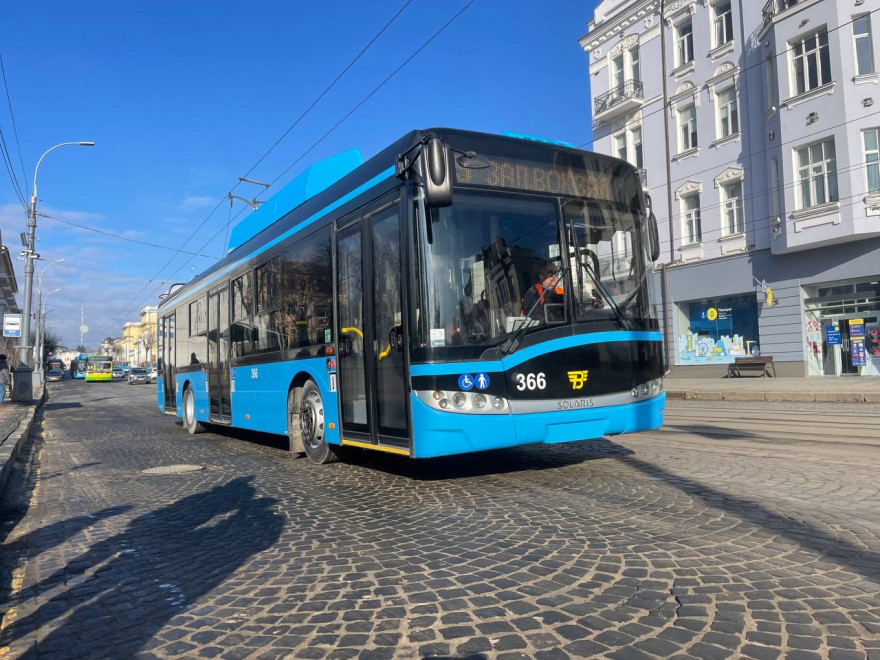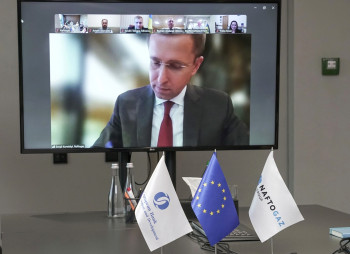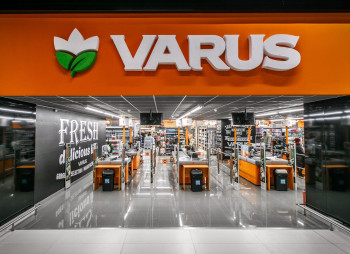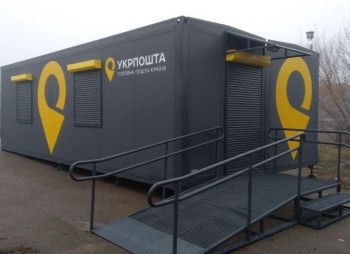The European Bank for Reconstruction and Development (EBRD) is lending €10.6 billion to Electrotrans, the urban transport company for the western Ukrainian city of Khmelnytskyi, to finance the purchase of new trolleybuses along with maintenance and diagnostic equipment.
The EBRD loan is part of a broader finance package, which includes an investment grant from the European Union’s Neighbourhood Investment Platform of up to €2.75 million and an investment grant of up to €1.7 million from the EBRD Crisis Response Special Fund, benefitting from a contribution from the government of the United States of America.
The project falls under the EBRD’s flagship EBRD Green Cities programme. Khmelnytskyi is one of several Ukrainian cities to have joined the €5 billion programme to plan a more liveable urban space for its more than 280,000 residents.
“Both the on-going solid waste project and the new trolleybus project are extremely important for the residents of Khmelnytskyi. We are delighted that we can implement these projects with the EBRD, our long-time partners, despite the war caused by the aggression of Russian Federation,” said Mayor Oleksandr Semchyshyn, who, along with Deputy Mayor Mykola Vavryshchuk, represented the city at a Warsaw signing with the EBRD’s Managing Director, Sustainable Infrastructure Group, Nandita Parshad.
Since Russia invaded Ukraine last February, the city has experienced large inflows of internally displaced people (IDPs), putting strain on city services.
The EBRD resumed work with Khmelnytskyi in June, adding a needs assessment for the internally displaced people now seeking refuge to Khmelnytskyi’s Green City Action Plan (GCAP) tailored to the city’s environmental needs. The assessment was funded by Sweden.
Improving the trolleybus fleet was identified as a priority while developing the GCAP. The project also plays a vital role for displaced people and other vulnerable groups, as it improves access to safe and reliable transport.
According to the IDP needs assessment, over 60 per cent of internally displaced people in Khmelnytskyi are women, and over 90 per cent of these IDPs had lost their jobs due to the war. A recent EBRD report on gender-based violence in Ukraine cited evidence that displaced women are more than three times likelier to experience gender-based violence and harassment than non-displaced residents. Women and children are also at higher risk of trafficking and exploitation.
The loan proceeds and grants will be used to buy new trolleybuses with remote monitoring systems, spare parts, and service equipment. The modernisation of the trolleybus fleet will improve the reliability and quality of services for public transport users, as well as improve air quality.
Safety issues will be addressed by installing surveillance cameras inside trolleybuses and upgrading trolleybus stops, whose €1.5 million cost will be met by the city along with upgrades to traction substations and the modernisation of the trolleybus depot.
Khmelnytskyi joined the EBRD Green Cities programme in 2019. Its first project signed in October 2020 was to improve solid waste management.
The EBRD Green Cities programme was established in 2016. Since then, it has assisted more than 50 cities on three continents, addressing their environmental issues and improving the quality of life of residents.
More than €5 billion are now dedicated to supporting EBRD Green Cities. The programme has also mobilised significant co-finance. This includes €87 million from the Green Climate Fund (GCF) and US$ 17.8 million from the Climate Investment Funds (CIF)’s Clean Technology Fund, as well as technical cooperation from the GCF and a number of EBRD bilateral donors.
The programme makes a major contribution to tackling climate change. Investments – from reducing building emissions to increasing the efficiency of transport ‒ help save nearly 1.4 million tonnes of carbon emissions per year, the equivalent of 296,000 cars.
The EBRD is the largest institutional investor in Ukraine. It has pledged to provide €3 billion of support for the country’s economy in 2022-23, with support focussing on vital infrastructure, food and energy security, trade and support for the private sector. In 2022 it deployed €1.7 billion in Ukraine, with a further €200 million mobilised from partner financial institutions.
When conditions permit the EBRD also stands ready to invest in reconstruction in Ukraine.






